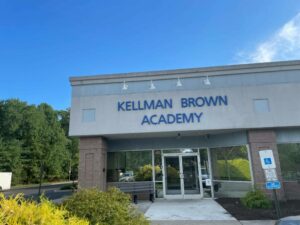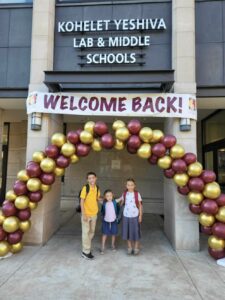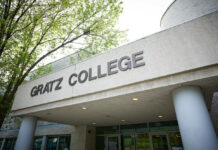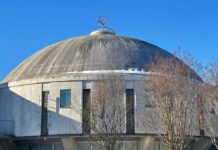
In June, area Jewish school leaders were reflecting on the end of another year when several of them pointed out the same trend: Their enrollments were growing.
Rachel Zivic, head of school at the Kellman Brown Academy in Voorhees, New Jersey, mentioned an increase of 60 students between 2020 and 2022. (That number is now up to 100.) Rabbi Marshall Lesack, the head of school at the Jack M. Barrack Hebrew Academy in Bryn Mawr, said that Barrack grew from 315 students in 2021 to 360 by September.
Rabbi Yisrael Davidowitz, who leads the Foxman Torah Institute in Cherry Hill, New Jersey, talked about how the school was planning to increase its student body from 80-90 students to 150 over the next few years. And Jennifer Groen, the new executive director at Kohelet Yeshiva in Merion Station, said the school community has 81 new students this year alone.
In communities around the region, Jewish schools are becoming more attractive. Several parents who have chosen Jewish schools in the past few years have the same answer: They are communities. They imbue students with a deeper sense of their Jewish identities and values. They also offer personalized educational experiences that matter post-COVID.
Florence Shulman sends her three children to KBA. When they get home, they tell her about how they know “everybody in the school,” she said.
April Delgado, a Cherry Hill resident, enrolled her two kids in KBA in the fall of 2020. Public schools in Cherry Hill were still closed due to the pandemic. Delgado said her son needed “to be somewhere.”
The 39-year-old, who grew up Jewish, and her husband, a convert, did not go to day school as children. They had no prior relationship with Kellman Brown. But the school was open, so they enrolled their son. They said it would be a one-year thing. But then they loved it.
“They make Judaism fun. They love prayers. They celebrate the holidays,” Delgado said. “My son’s favorite holiday is Passover. Chanukah is not even in his top five.”
Delgado attended public and Hebrew schools growing up. She explained that her son’s Jewish identity runs deeper than her own.
“He’s living his faith every day,” the mom said. “It’s not just a couple hours on Sunday.”
Samantha Rosenberg, a Gladwyne resident, decided with her husband during the first year of the pandemic to send her kids to Barrack. Rosenberg said they “weren’t a traditional private school or Jewish day school family.” But they watched their kids at home learning on computers during the early days of COVID. And it made them question what kind of education they wanted to provide for their children.
The mother began calling around. She was looking for “a nurturing environment where they share the values we share and a community where we’d feel supported during this uncertain time.”
Other administrators were formal on the phone. Barrack’s were not. Rosenberg felt welcome. Like Delgado, she said she would give it a try for a year. Her kids are still there.
“I feel like every assignment is thoughtful,” the mom said. “Every experience they get is mapped out so well to make them the best citizens, the best students, and to set them up to succeed at Barrack but also beyond.”

Since Kohelet and Foxman are Orthodox institutions, the growth at those two places can be attributed to the growth of the Orthodox community in recent years, according to Groen and Davidowitz. In a traditional community, a school is an anchor, Davidowitz said. Once it takes root, organizations, businesses and neighborhoods spring up around it.
He mentioned Lakewood, New Jersey, one of the biggest Orthodox communities in the United States, as an example.
“Lakewood began as a yeshiva town,” the rabbi said.
Now, more Jews are opting for yeshiva towns.
“They are looking for strong Jewish life. Jewish education. Jews are people of the book, and the book is the Torah, and the Torah is studied in yeshiva schools,” Davidowitz said. “Let us grow in schools and everything else can grow along with it.”
“It’s a very rich and beautiful life. They have meaning in their life and feel fulfilled spiritually,” he continued. “Too much indulgence, overindulgence, doesn’t make people happy. People are realizing that. People think, ‘I’ll be happy if I have a lot of physical pleasures.’ But that doesn’t make people happy.”






